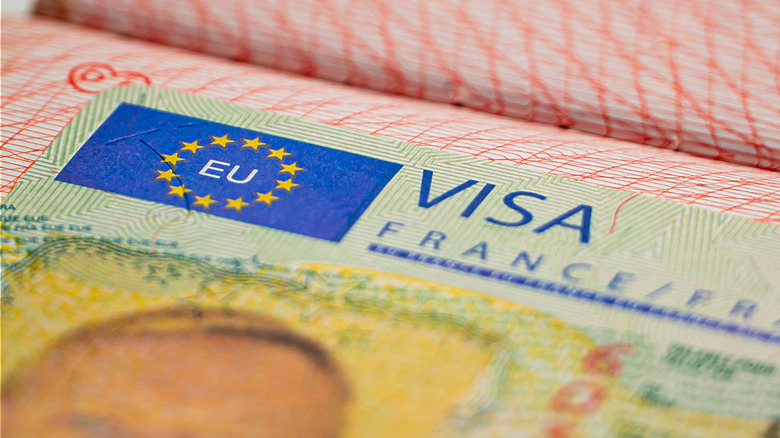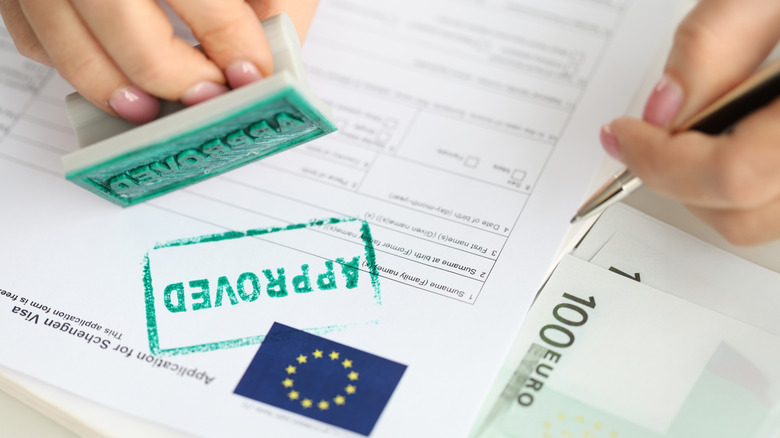Don't Book Your Flight To France Without Knowing About This Major Visa Change
France is a dream destination for many. After all, not everyone can say that they've seen the Eiffel Tower in Paris or sipped champagne along the French Riviera coastline. However, booking your trip there has just become a bit more complicated. Visa requirement laws are constantly changing, and as an American, it's important to research whether your citizenship requires applying for a visa in a European country.
For France specifically, here's the short answer: if you travel up to 90 days within 180 days, then no, you don't need a visa as a U.S. traveler. If you plan to stay longer than what is considered a "short stay" (over 90 days) — may it be for work, study, or extended travel — then yes, you will need to apply for a visa.
Now, as of June 2025, appointments must be booked online through the French government's official visa platform. After receiving an email confirmation, you'll also be required to attend a biometric appointment at a visa application center. So, if you're looking to stay in France for a while, it's crucial to understand the Schengen visa process and prepare well in advance.
What you need to know about France's Schengen visa laws
Before June 2025, you were able to call, email, or book an appointment over the phone. Now, it is mandatory to schedule your appointment online through the official French visa portal. While that's the most recent change at the date of this article's publication, there have been a couple more since April, and more to come in the following year.
As of April 2025, visa processing in the U.S. is now managed by TLScontact. This third-party company opened 11 new visa centers in the U.S., making booking an appointment a bit more flexible. In October 2025, the Entry/Exit System (EES) will be digitized, with the biometrics taken to obtain your visa. This system will digitize border checks, enhance identity verification, and eventually replace traditional passport stamping. While U.S. citizens are currently visa-exempt for short stays, by late 2026, travelers will need to obtain pre-travel authorization through the European Travel Information and Authorisation System (ETIAS). This online authorization will cost €7 (around $8) and will be valid for up to three years.
How to apply for a French visa
Obtaining the Schengen visa is a detailed and time-sensitive process. If you're still unsure if you qualify for a French Schengen visa, you can take the first step by using their Visa Wizard tool and filling out the form. This interactive tool will tell you if you need a visa, which type you'll need, and what documents are required. If you qualify, then you must use their Démarches Simplifiées website to set up your application and request your appointment online (per the new June 2025 mandate). You must do this no earlier than six months and no later than two weeks before your departure. You will receive an email to confirm your appointment that you must respond to — otherwise, it will be voided. Next, you will need to fill out an application via the France-Visas website, and be sure to print and gather all of your documents for the in-person appointment.
For the in-person appointment, bring all your printed documents, payment receipts, and the visa fee. At this stage, your biometric data will be collected, and your paperwork will be officially submitted. Finally, track your application online. Typically, you'll be notified to collect your passport and visa from the consulate within 15 calendar days. While the process may seem lengthy, preparing in advance and staying updated with evolving regulations will make it much smoother.


